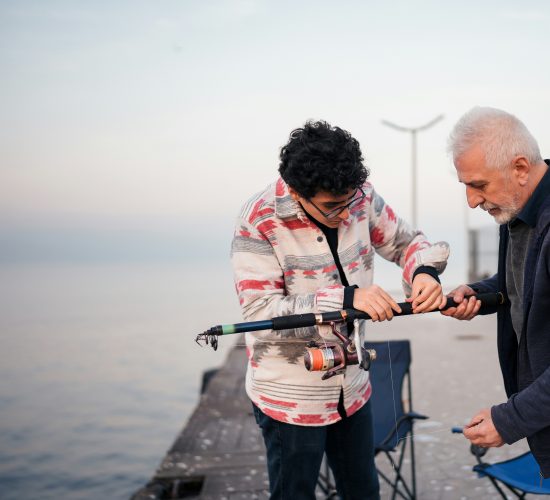The Globetrotting Life of Marine Geochemists: Unraveling the Secrets of the Oceans

Marine geochemistry, a captivating field at the intersection of oceanography and chemistry, offers a unique blend of laboratory research and adventurous travel. Marine geochemists delve into the chemical characteristics of oceanic processes, striving to understand the composition and behavior of various elements within aquatic environments. Their work is not confined to the comforts of a laboratory; it often requires extensive travel to some of the most remote and exotic locales on Earth. This article will explore how marine geochemists traverse the globe to unlock the oceans’ mysteries.
The Need for Travel in Marine Geochemistry
Marine geochemistry is inherently a field that demands physical presence in diverse aquatic settings. The oceans cover more than 70% of the Earth’s surface, comprising different bodies of water, each with unique chemical compositions and environmental challenges. To obtain accurate and comprehensive data, marine geochemists often need to collect samples from various locations, ranging from the icy Arctic waters to the tropical seas’ warm currents.
Expedition-Based Research
One of the primary reasons marine geochemists travel is to participate in research expeditions. Depending on the project’s scope, these journeys can last from a few weeks to several months. For instance, geochemists might board research vessels equipped with advanced scientific instruments to collect water, sediment, and biota samples from the ocean floor. These expeditions are critical for gathering data on salinity, nutrient levels, and trace metal concentrations, pivotal in studying ocean acidification and climate change.
Collaboration and Field Studies
Marine geochemistry is a collaborative discipline often involving international research teams. Scientists might travel to different countries to work with local experts or to access specialized facilities. For example, analyzing isotopic compositions of marine samples might require using a high-resolution mass spectrometer that is available only at specific institutions. Furthermore, field studies in marine geochemistry focus on the open ocean and include coastal areas, estuaries, and deep-sea hydrothermal vents, all of which require geochemists to be on-site.
Conferences and Scientific Gatherings
Attending international conferences, workshops, and symposia is another travel aspect of a marine geochemist’s career. These events are crucial for presenting research findings, networking with other scientists, and staying updated on the latest advancements in the field. They provide a platform for marine geochemists to collaborate on global issues like marine pollution and conservation strategies and to influence environmental policies and practices.
Educational and Teaching Opportunities
Many marine geochemists are also involved in educational programs that require travel. They might visit different universities as guest lecturers or participate in educational cruises designed to train the next generation of oceanographers. These opportunities help disseminate valuable knowledge and inspire students to consider careers in marine science.
Challenges and Rewards of Travel
The extensive travel involved in marine geochemistry comes with challenges and rewards. While visiting distant and often pristine environments can be exhilarating, it also demands a high degree of physical and mental preparation. The conditions during sea voyages can be harsh, and working on a moving ship requires specific skills and resilience. However, the rewards are substantial, offering firsthand experiences of the ocean’s beauty and complex ecosystems, often inaccessible to many individuals.
Impact on Personal Life
Marine geochemists’ demanding travel schedules can also significantly impact their personal lives. Long periods away from home can be challenging for maintaining relationships and family life. However, many scientists find the unique experiences and contributions to understanding and protecting our planet profoundly fulfilling, outweighing the personal sacrifices.
The Future of Travel in Marine Geochemistry
As technology advances, the nature of travel in marine geochemistry is evolving. Remote sensing technologies, autonomous underwater vehicles, and satellite observations are beginning to reduce the need for physical presence. These technologies enable continuous monitoring of oceanic parameters and can reach areas otherwise too dangerous or inaccessible for humans. Despite these advancements, hands-on sampling and in-situ observations remain irreplaceable for certain types of chemical analyses and complex studies.
Travel is a fundamental aspect of being a marine geochemist. It enriches the scientists’ professional and personal lives, offering unique challenges and opportunities not found in many other professions. Through their journeys, marine geochemists play a crucial role in advancing our understanding of marine environments and contributing to the sustainable management of ocean resources. Whether aboard a research vessel in the middle of the Pacific, presenting at an international conference, or teaching in a classroom, marine geochemists are true explorers of our blue planet.